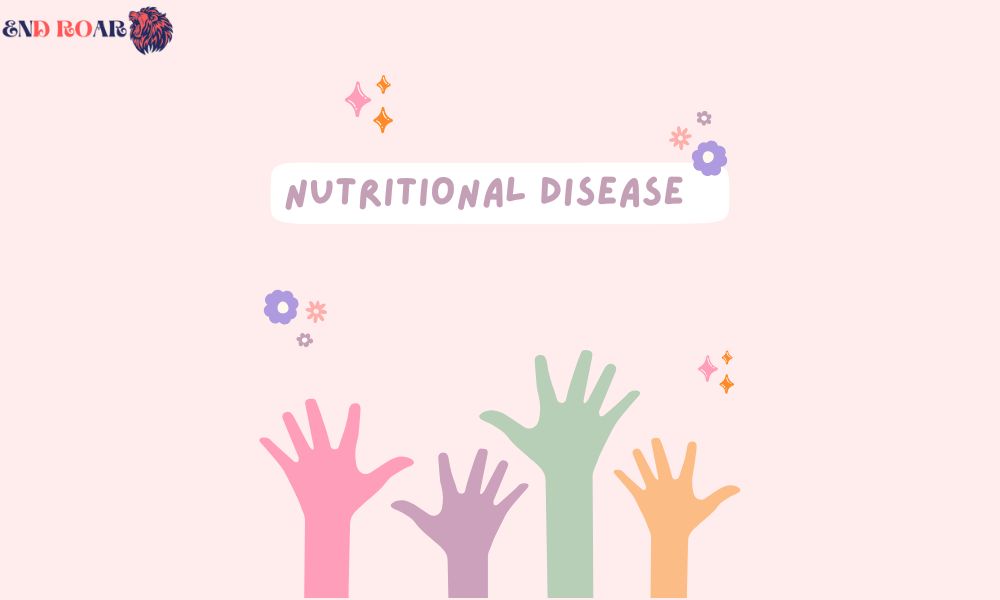Table of Contents
Nutritional Disease: Understanding the Impact of Diet on Health
Introduction
In today’s fast-paced world, where convenience often takes precedence over nutritional value, it’s crucial to recognize the impact of our diet on overall health. Nutritional diseases are conditions that arise due to deficiencies, imbalances, or excesses of essential nutrients in our bodies. These diseases can have a profound impact on our well-being and quality of life. In this article, we will explore various nutritional diseases, their causes, symptoms, prevention, and treatment options.
1. Understanding Nutritional Diseases
Nutritional diseases encompass a wide range of conditions that result from inadequate or excessive nutrient intake. These diseases can arise due to deficiencies in essential vitamins, minerals, proteins, carbohydrates, or fats. Additionally, excessive consumption of certain nutrients can also lead to health issues.
2. The Role of Macronutrients
Macronutrients, including carbohydrates, proteins, and fats, are vital for our bodies to function optimally. Imbalances in their consumption can contribute to the development of nutritional diseases. Carbohydrate-rich diets may lead to conditions like diabetes, while excessive intake of unhealthy fats can increase the risk of cardiovascular diseases.
3. Micronutrient Deficiencies
Micronutrients, such as vitamins and minerals, are required in small quantities but play a crucial role in maintaining our health. Deficiencies in micronutrients can lead to various diseases. For example, inadequate vitamin D intake can result in bone-related disorders, while iron deficiency can cause anemia.
4. Obesity and its Health Implications
Obesity is a significant nutritional disease affecting millions worldwide. It occurs when there is an imbalance between caloric intake and expenditure, resulting in excessive weight gain. Obesity increases the risk of numerous health conditions, including diabetes, heart disease, and certain cancers.
5. Diabetes: A Nutritional Disease
Diabetes, a chronic metabolic disorder, is often associated with poor dietary choices. Excessive consumption of sugary foods and a sedentary lifestyle contribute to the development of type 2 diabetes. Maintaining a balanced diet and engaging in regular physical activity is crucial for managing this condition.
6. Cardiovascular Diseases and Diet
Unhealthy dietary patterns, such as high intake of saturated fats and cholesterol, are major contributors to cardiovascular diseases. A diet rich in fruits, vegetables, whole grains, and lean proteins can help reduce the risk of heart disease, stroke, and hypertension.
7. Malnutrition: A Global Concern
Malnutrition, characterized by deficiencies or imbalances of essential nutrients, affects millions of people worldwide, particularly in low-income countries. Insufficient access to nutritious food can lead to stunted growth, weakened immune systems, and increased susceptibility to diseases.
8. Eating Disorders and Nutritional Imbalances
Eating disorders like anorexia nervosa, bulimia nervosa, and binge eating disorder are serious mental health conditions that often involve distorted eating habits. These disorders can lead to severe nutritional imbalances, causing a range of physical and psychological complications.

Nutritional Disease
9. The Importance of Balanced Nutrition
Maintaining a balanced diet is crucial for preventing nutritional diseases. A balanced diet includes a variety of nutrient-dense foods from all food groups, ensuring an adequate intake of essential vitamins, minerals, proteins, carbohydrates, and fats. It promotes overall health and reduces the risk of many diseases.
10. Prevention and Treatment Strategies
Preventing nutritional diseases requires adopting healthy lifestyle habits. This includes consuming a well-balanced diet, engaging in regular physical activity, avoiding excessive alcohol consumption and smoking, and managing stress effectively. Additionally, regular health check-ups can help identify and address any nutritional deficiencies.
11. Promoting Healthy Eating Habits
Educating individuals about healthy eating habits is essential for preventing nutritional diseases. This can be achieved through public health campaigns, school programs, and community initiatives that emphasize the importance of nutrient-rich foods, portion control, and mindful eating practices.
12. The Role of Supplements
While a balanced diet should ideally provide all the necessary nutrients, certain individuals may require supplements to meet their nutritional needs. However, it’s important to consult with healthcare professionals before taking any supplements to ensure their safety and effectiveness.
13. Nutritional Diseases in Children
Children are particularly vulnerable to nutritional diseases as they undergo rapid growth and development. Adequate nutrition during childhood is crucial for their physical and cognitive development. Parents and caregivers should focus on providing nutrient-rich meals and creating a positive food environment for children.
14. Aging and Nutritional Challenges
As individuals age, their nutritional requirements may change. Aging can be associated with decreased appetite, impaired nutrient absorption, and an increased risk of chronic diseases. Older adults should pay close attention to their dietary choices, ensuring they meet their nutritional needs through nutrient-dense foods.
Conclusion
Nutritional diseases can have a significant impact on our health and well-being. By understanding the role of diet in preventing and managing these diseases, we can make informed choices about our nutrition. Maintaining a balanced diet, engaging in regular physical activity, and seeking professional guidance when needed are key steps toward a healthier future.
FAQs (Frequently Asked Questions)
- How can I prevent nutritional diseases?
- Are supplements necessary for maintaining good health?
- What are the common symptoms of malnutrition?
- Can nutritional diseases be reversed with dietary changes alone?
- How can parents ensure their children have a balanced diet?
Death: A Journey into the Unknown
Human-Genetic Disease: Understanding the Impact on Health
1 comment
[…] Now Understanding Human Diseases: Causes, Symptoms, and Treatments Nutritional Disease: Understanding the Impact of Diet on… Death: A Journey into the Unknown Human-Genetic Disease: Understanding the Impact on Health […]